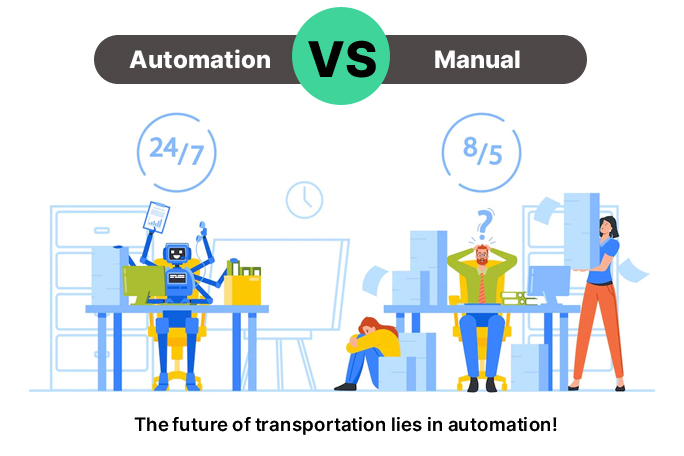-
ALL-IN-ONE TRUCKING PLATFORM

Find out how our truck management solution can ease your day to day life.

When we hear the term “autonomous vehicles,” we get a mental image of self-driving cars. However, autonomy is changing much more than just personal transportation.
Commercial vehicles known as autonomous trucks employ artificial intelligence to automate anything from long-distance deliveries to activities in shipping yards. These intelligent trucks may be the first mass-produced autonomous fleet to travel on public roadways due to industry challenges from increased delivery demand, driver shortages, and operating domains like motorways.
Businesses have a stake in learning how an autonomous fleet can impact them in the not-too-distant future. So, let’s get to know the most important ones.
Human involvement in the driving process can be considerably reduced with autonomous trucking. As a result, the price of using human drivers will also decrease. For instance, businesses can reduce the labor expenditures associated with long-distance or nighttime driving. Other expenses related to human drivers, like insurance and accident liability, won’t be borne by the company. An autonomous fleet can reduce the need for carrying to a halt when drivers need to rest over the night by lowering human-caused driving errors.
The benefits of autonomous trucks for safety could be substantial. Trucks are engaged in hundreds of thousands of collisions annually, which cause tens of thousands of injuries and fatalities. The number of collisions could be decreased by autonomous cars. They can travel at periods of the day when it isn’t as busy. Furthermore, they would have information from highly developed sensors on board that may forewarn them of issues before they occur.
Other drivers are fighting against these driverless trucks even more vehemently than truckers. Driving next to big vehicles makes people uneasy already. It is disturbing and unsettling to imagine looking up and finding no one in the driver’s seat of such a massive piece of metal and freight.
Businesses are quick to choose the most cost-effective solution, such as driverless trucks, over trucker wages, but this could cost them their customer base. It will be vital for transportation management to consider consumer reactions when making future technological decisions in this way.
An autonomous fleet can help companies ship goods more quickly to customers as the demand for this service increases. This effect will include new approaches to handling goods and producing new products. TMS solutions like TruckSmartz, in particular, will become much more critical for shippers in understanding the advantages of autonomous fleets and partially autonomous warehouse equipment.
However, organizations’ costs will significantly decrease due to autonomous haulage. If businesses decide to run their vehicles on electric power, it will also reduce pollutants. The advent of autonomous trucks can potentially improve every stage of the supply chain.
Spend more time working on growing your business when TruckSmartz takes the hassle of managing the mundane tasks off your shoulders.
Show Me How